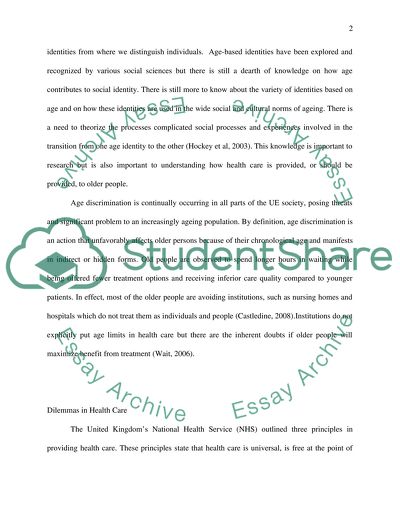Cite this document
(“Ageism and Racism Faced By Older People in Health and Social Care Essay”, n.d.)
Ageism and Racism Faced By Older People in Health and Social Care Essay. Retrieved from https://studentshare.org/social-science/1555030-ageism-and-racism-faced-by-older-people-in-health-and-social-care-sector-in-uk
Ageism and Racism Faced By Older People in Health and Social Care Essay. Retrieved from https://studentshare.org/social-science/1555030-ageism-and-racism-faced-by-older-people-in-health-and-social-care-sector-in-uk
(Ageism and Racism Faced By Older People in Health and Social Care Essay)
Ageism and Racism Faced By Older People in Health and Social Care Essay. https://studentshare.org/social-science/1555030-ageism-and-racism-faced-by-older-people-in-health-and-social-care-sector-in-uk.
Ageism and Racism Faced By Older People in Health and Social Care Essay. https://studentshare.org/social-science/1555030-ageism-and-racism-faced-by-older-people-in-health-and-social-care-sector-in-uk.
“Ageism and Racism Faced By Older People in Health and Social Care Essay”, n.d. https://studentshare.org/social-science/1555030-ageism-and-racism-faced-by-older-people-in-health-and-social-care-sector-in-uk.


